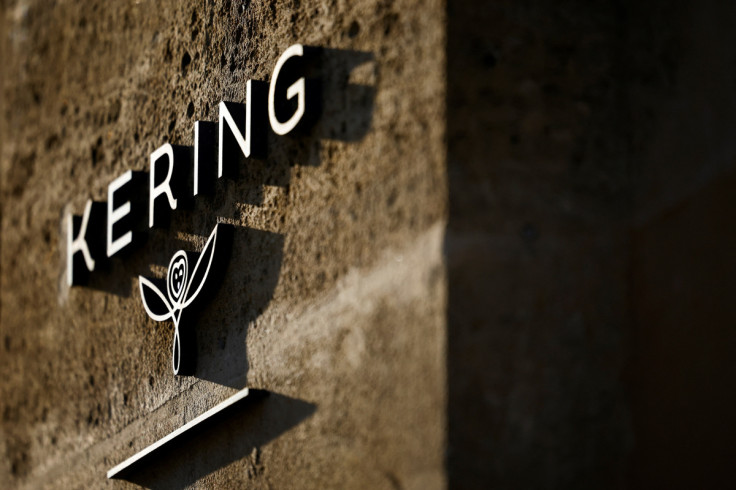Kering Sells Beauty Division to L'Oréal in £3.36 Billion Deal — Here's Why

KEY POINTS
- CEO Luca de Meo is selling the beauty business to reduce Kering's €9.5 billion debt and focus on its struggling core fashion labels.
- The move signals a return to fashion-first priorities under de Meo.
Luxury powerhouse Kering has announced the sale of its beauty division to L'Oréal for £3.36 billion, in a landmark deal that marks a sharp strategic shift under new chief executive Luca de Meo.
The French group, best known for fashion houses Gucci, Balenciaga and Bottega Veneta, said on Sunday it would transfer ownership of its Creed fragrance line and grant L'Oréal 50-year exclusive licences to produce beauty and fragrance products for its brands.
The agreement, L'Oréal's biggest acquisition to date, underscores how both companies are reshaping their priorities.
For Kering, it represents a step back from beauty to refocus on its struggling fashion core. For L'Oréal, it expands its dominance in luxury cosmetics.
L'Oréal's Biggest Buy Yet
Under the deal, L'Oréal gains full rights to Creed, the heritage fragrance house Kering bought in 2023 for about £2.94 billion. It will also hold long-term development rights for Kering's key fashion labels, beginning when existing contracts with Coty expire in 2028 for Gucci fragrances.
L'Oréal described the transaction as a transformative acquisition that strengthens its global luxury portfolio. The company already produces blockbusters such as Yves Saint Laurent Beauté, acquired from Kering in 2008 for about £970 million.
A spokesperson for L'Oréal said there were 'plenty of acquisitions being looked at this year', signalling that the group remains aggressive in pursuing premium brands.
Earlier this month, Reuters reported that Armani Group representatives had approached L'Oréal after the late Giorgio Armani named it among preferred buyers for a minority stake in his fashion house.
Cutting Debt and Refocusing
The £3.36 billion sale is also a much-needed move to reduce Kering's debt, which stood at around £7.98 billion at the end of June, excluding a further £5 billion in lease liabilities that have worried investors.
'This is a clear sign that de Meo is acting quickly to stabilise Kering's balance sheet and simplify its structure,' said one Paris-based luxury analyst. 'The Creed purchase was a bold bet that did not deliver. L'Oréal, however, is perfectly positioned to extract value from those assets.'
Kering's beauty arm, created only last year, posted an operating loss of about £50 million for the first half of 2025. The division was designed to diversify the group's portfolio beyond Gucci, which generates the majority of its profit.
However, Gucci's revenue plunged 25 per cent in the latest quarter as demand in China weakened, adding pressure on the company to deleverage and avoid further credit downgrades.
De Meo's Swift Course Correction
Luca de Meo, who took over as chief executive in September 2025, has wasted little time reversing course on one of predecessor François-Henri Pinault's most ambitious ventures.
'We will take difficult but necessary decisions to strengthen Kering's fundamentals,' de Meo told shareholders last month. 'Our focus must return to fashion, creativity and operational excellence.'
Industry observers say the move highlights a philosophical shift at the heart of Kering. While Pinault sought to emulate LVMH by building an in-house beauty pillar, de Meo appears intent on tightening the company's focus.
'Kering is going back to what it does best: luxury fashion,' said Delphine Lemaire, a retail consultant in Paris. 'Beauty is lucrative, but it requires scale and distribution power that L'Oréal already dominates. Selling now at a premium makes sense.'
Market Reactions and Outlook
Analysts say proceeds from the sale could help Kering pay down debt, fund creative renewals across its brands, and rebuild investor confidence. Shares in the group have lagged rivals this year amid weak demand and doubts about Gucci's revival.
Meanwhile, L'Oréal's acquisition spree cements its position as the world's largest dedicated beauty company, with a portfolio that includes Lancôme, Armani Beauty and Kiehl's. The Creed addition, combined with future control over Gucci, Bottega Veneta and Balenciaga fragrances, will significantly boost its luxury segment.
'This is a win-win,' said one London-based equity strategist. 'Kering unloads debt and non-core losses, while L'Oréal gains prestige licences that could yield billions in recurring revenue.'
The deal, expected to close next year pending regulatory approval, continues a broader trend of consolidation in the luxury and beauty sectors. For de Meo, it signals a pragmatic new era for Kering, one focused less on diversification and more on restoring its fashion crown jewel.
© Copyright IBTimes 2025. All rights reserved.





















